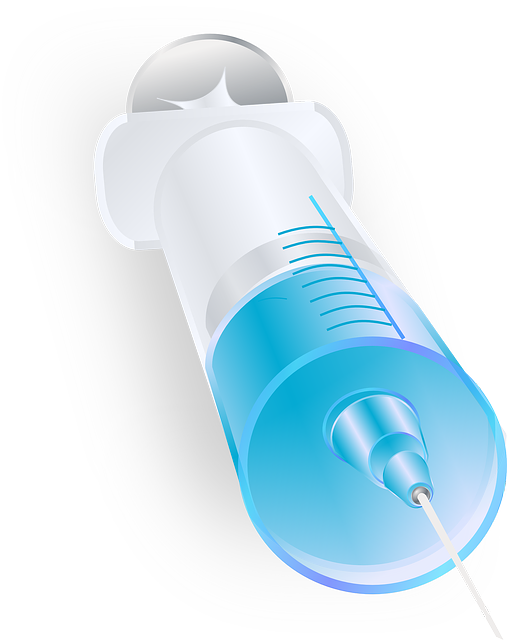Elderly depression treatment demands a multifaceted, personalized approach due to its subtle symptoms and co-occurring conditions like anxiety. Effective strategies integrate geriatric psychiatry, therapeutic activities, support groups, and medication management within senior living communities for early detection and holistic care. Tailored interventions addressing age-related physical health, cognitive changes, and social dynamics are crucial for preventing relapse in older adults with addiction issues, emphasizing the importance of community connections and evidence-based practices like CBT.
Mental health and addiction are significant concerns among older adults, with unique challenges arising as a result of age-related factors. This article explores tailored strategies for addressing these issues, focusing on both prevention and recovery. We delve into understanding elderly depression, its signs, and the specific challenges faced by seniors seeking treatment. Additionally, we discuss integrated care models within senior living communities and effective long-term strategies to sustain recovery in this demographic, emphasizing the importance of specialized elderly depression treatment.
- Understanding Elderly Depression: Signs and Challenges
- Tailored Treatment Approaches for Seniors with Addiction
- Integrating Mental Health Support in Senior Living Communities
- Effective Strategies for Sustaining Recovery in Older Adults
Understanding Elderly Depression: Signs and Challenges

Depression among older adults is a significant concern that often goes unnoticed or undiagnosed. As individuals age, they may experience a decline in physical and cognitive function, leading to feelings of isolation, loss, and sadness. The signs of depression in the elderly can be more subtle than those typically associated with younger individuals. Common indicators include persistent sadness, loss of interest in activities once enjoyed, changes in appetite and sleep patterns, fatigue, difficulty concentrating, and feelings of worthlessness or guilt.
The challenges of treating elderly depression are multifaceted. Geriatric psychiatry specialists must consider the unique physiological and psychological changes that accompany aging. Additionally, co-occurring disorders, such as chronic illnesses or substance abuse (senior addiction), can complicate treatment. Tailoring effective interventions requires a comprehensive approach that addresses physical health, cognitive function, social connections, and environmental factors. Early identification of depression in older adults is crucial to preventing its progression and improving overall elderly mental health outcomes.
Tailored Treatment Approaches for Seniors with Addiction

In addressing addiction among older adults, it’s crucial to recognize that treatment approaches need to be tailored to their unique needs and challenges. Many elderly individuals struggle with co-occurring disorders, such as depression, anxiety, or cognitive impairments, which can complicate substance abuse issues. Therefore, comprehensive programs that integrate geriatric psychiatry and specialized care are essential. These tailored interventions consider the physical, emotional, and social aspects of an individual’s life, often incorporating therapeutic activities, support groups, and medication management.
Understanding the context of elderly depression treatment reveals a focus on enhancing overall well-being rather than solely targeting addiction. This holistic approach acknowledges that addressing underlying mental health issues is vital for successful long-term recovery. By combining evidence-based therapies with compassionate care, senior addiction treatment programs can effectively support older adults in overcoming substance abuse and reclaiming their quality of life.
Integrating Mental Health Support in Senior Living Communities

Integrating mental health support within senior living communities is a critical approach to addressing the unique challenges faced by older adults. Many elderly individuals struggle with depression, anxiety, and other mental health issues, often exacerbated by social isolation, physical limitations, or the loss of loved ones. Senior living communities that offer on-site psychiatric services or partnerships with geriatric psychiatry experts can provide timely interventions and continuous care.
This holistic integration ensures that residents receive comprehensive support tailored to their needs. It allows for early detection and management of mental health conditions, preventing them from escalating. Additionally, it fosters a sense of community and belonging, as social connections are vital for the well-being of seniors. With the right combination of therapy, medication, and peer support, elderly depression treatment can be highly effective within these supportive environments.
Effective Strategies for Sustaining Recovery in Older Adults

In designing effective strategies for sustaining recovery among older adults, it’s crucial to recognize the unique challenges they face compared to their younger counterparts. Elderly depression treatment often requires a holistic approach that addresses both mental health issues and co-occurring substance use disorders. Geriatric psychiatry specialists emphasize tailored interventions considering age-related physical health, cognitive changes, and social dynamics.
For instance, engaging activities that cater to seniors’ interests and abilities can foster community connections, enhancing social support—a vital component in preventing relapse for older adults with addiction issues. Moreover, integrating evidence-based practices such as cognitive behavioral therapy (CBT) alongside peer support groups tailored for seniors can significantly improve recovery outcomes by addressing both mental health symptoms and the specific challenges of aging.
In addressing mental health and addiction among older adults, recognizing and treating elderly depression effectively is paramount. By understanding the unique signs and challenges associated with this demographic, tailored interventions such as specialized addiction programs for seniors can significantly enhance recovery outcomes. Integrating mental health support within senior living communities further reinforces continuous care, while implementing effective strategies for sustaining recovery ensures long-term well-being. Through these comprehensive approaches, we can improve the quality of life for elderly individuals struggling with depression and addiction, fostering a more supportive and inclusive environment tailored to their evolving needs.

